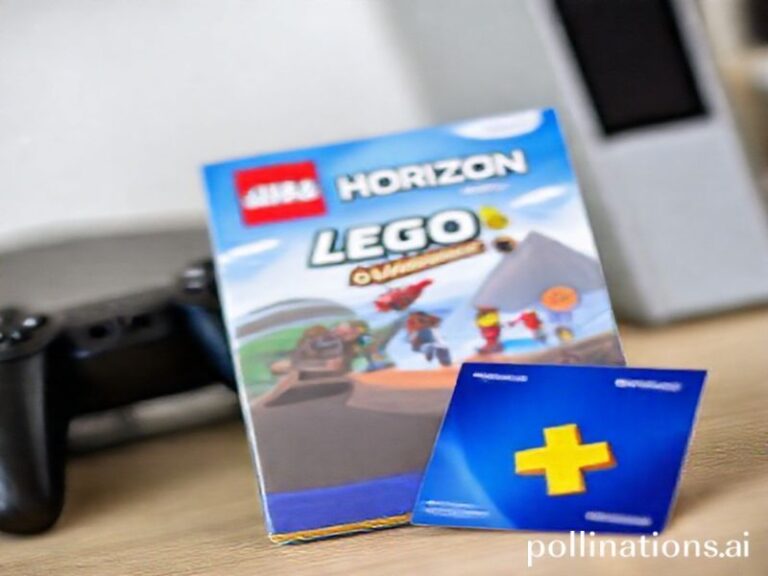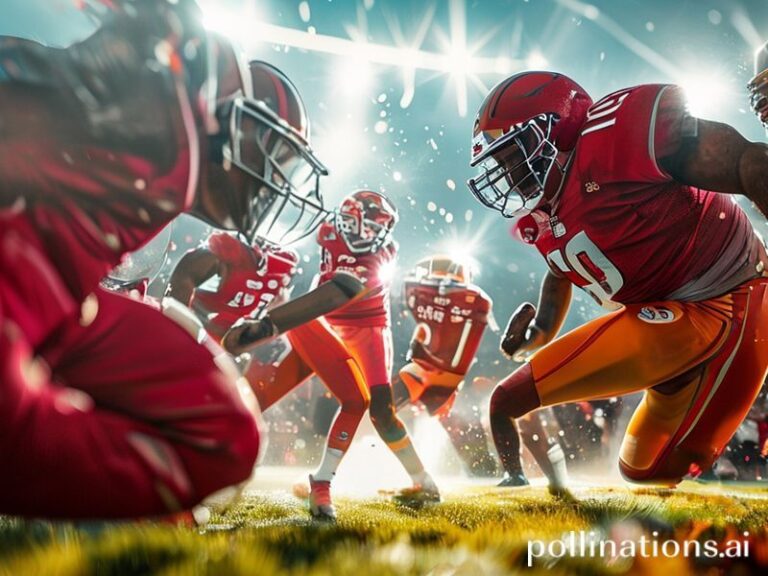Marlins vs Rangers: The Geopolitical Box Score Nobody Asked For
Marlins vs Rangers: A Global Trade War in Cleats
By Our Correspondent Who Once Covered a UN Summit and Found More Diplomacy in the Dugout
MIAMI—While the rest of the planet negotiates over microchips, grain corridors, and which septuagenarian autocrat will next threaten nuclear Armageddon, two American ball clubs convened at LoanDepot Park last night to stage a far more honest form of conflict: the Miami Marlins versus the Texas Rangers. On paper it was a mere interleague tilt, the baseball equivalent of an awkward office mixer. In practice it became the newest proxy battlefield for every simmering anxiety now rattling the globe—supply chains, petro-dollars, real-estate bubbles, even the creeping suspicion that the American Dream has been foreclosed and resold on Airbnb.
The Marlins, named for a fish that is rapidly vanishing from warming seas, arrived wearing teal and existential dread. The Rangers, named for lawmen who once policed an empire built on stolen land, showed up in red, white, and the smug confidence of a state that still thinks it can secede whenever the Wi-Fi goes out. Their respective dugouts looked less like sports benches and more like competing Davos panels—one preaching sustainability through carbon-offset bobbleheads, the other hawking liquefied-natural-gas fastballs.
From the start, the game played like a WTO dispute with pine tar. Miami’s starter, a Cuban defector who once risked shark-infested waters for a shot at minimum wage, struck out the side in order. His counterpart, a Vanderbilt-educated Texan whose signing bonus could bankroll a Baltic military parade, responded by painting corners with the effortless precision of a Swiss banker laundering rubles. The first inning ended nil-nil, delighting only the crypto bros who’d bet the under on the blockchain.
By the fourth, geopolitics intruded. A Venezuelan slugger—representing the same country Washington refuses to buy oil from—launched a hanging curve into the upper deck. The ball landed near a group of Canadian snowbirds who promptly apologized to their Cuban-American seatmates for the “unseemly trajectory.” Simultaneously, in the Rangers bullpen, a Dominican reliever warmed up beside a Mexican catcher while both checked their phones for updates on the latest U.S. tariff spat. Somewhere, a Brussels bureaucrat sneezed.
The scoreboard, meanwhile, flashed between innings ads for Caribbean cruises and Texan fracking companies, a split-screen reminder that paradise and perdition share the same ad-buy spreadsheet. Between pitches, the jumbotron encouraged fans to “text FISH to 80808 for 10% off a timeshare,” because nothing says sport like indentured leisure. At the craft-beer kiosk, a German tourist asked if the IPA was “sustainably hopped.” The vendor replied, “It’s hopped with student-loan bitterness, close enough.”
In the seventh, a Miami reliever—fresh off a minor-league shuttle that smelled of bus-station despair—walked the bases loaded. Enter Texas’s designated hitter, a man whose beard alone qualifies for OPEC membership. He deposited a slider into orbit, triggering the home-run sculpture in center field: neon dolphins, strobe lights, and a mechanical marlin that looked as confused as a UN peacekeeper in a coup. The Rangers took a 4-2 lead; global oil futures ticked up a dime on pure symbolism.
Not to be outdone, the Marlins rallied in the eighth via a Bahamian speedster who legged out a triple while the right-fielder contemplated the collapse of the Evergrande bond market. Tie game. Extra innings. Somewhere in Geneva, a sanctions committee adjourned early to watch on MLB.TV.
By the 11th, both bullpens resembled refugee camps: exhausted arms wrapped in ice, dreams deferred like Argentine debt. A rookie from Curaçao—population 150,000 and roughly as many MLB shortstops—finally ended it with a bases-loaded flare that dropped between three Rangers who were too busy calculating arbitration clocks to call each other off. Marlins win 5-4. The crowd, a polyglot swirl of passports and regret, filed out past souvenir stands hawking “Authentic Game-Used Dirt” at $19.99 per thimble.
In the post-game presser, managers recited platitudes like seasoned diplomats: “We battled,” “Tip your cap,” “One game at a time.” Translation: nobody has a plan; everyone is improvising; tomorrow we fly coach to the next theater of the absurd. The real box score, visible only to those who bothered to look, read: Planet Earth—still behind, still no closer to extra innings.







